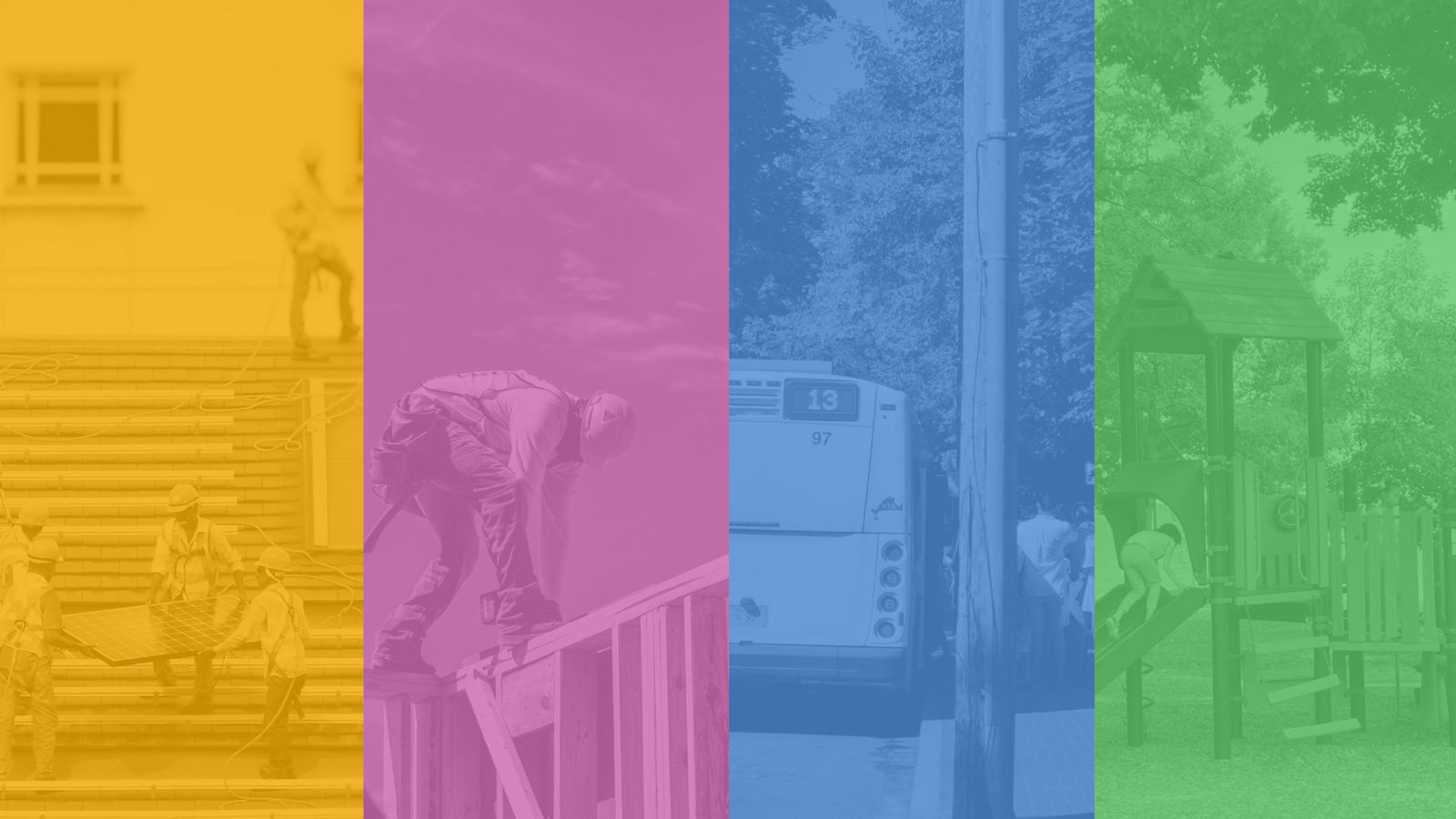Conversations with Frontline Organizations on Connecting Climate and Community Priorities
Over the course of January to March 2021, Climate XChange and Fairmount-Indigo CDC Collaborative engaged in conversations with frontline community leaders across Massachusetts. These discussions sought to understand the challenges they see in their communities, comprehend their long-term vision for solutions, gather their priorities for how investments should be spent, and identify ways to make the benefits of investments accessible to all. The researchers talked with individuals from organizations working in communities of color and low-income communities, labor unions, women-led organizations, local colleges, and organizations representing communities affected by sea level rise. Below are key recommendations drawn from each section of the report that represent the qualities and values that every investment package moving forward should exhibit. Interviewees stressed that the stakes are too high to repeat the same mistakes again.
It is imperative that during this time of coinciding public health and climate crises, the voices of frontline organizations in Massachusetts are centered in designing solutions. Communities thrive when they are able to use their expertise to envision and shape the outcomes that best fit local priorities. When it comes to investment programs, they are most effective when rooted in the lived experience of communities.
Climate XChange embarked on this research project to highlight the priorities of frontline organizations across Massachusetts for how to best allocate government investments spurred by this moment of economic, social, and climate crises. This study is complementary to a technical report authored by Climate XChange, entitled, “Investing in a Better Massachusetts: An Analysis of Job Creation and Community Benefits from Green Investments,” which models the potential jobs, health, and energy cost benefits from dozens of green investments across the Commonwealth. The numbers and lived experiences tell a clear story of what kinds of projects would best serve communities in Massachusetts.
Watch Investing in a Better Massachusetts authors talk about the report
Government spending has dominated the political conversation since the beginning of the pandemic; however, it is critical that these projects do not repeat the failures of their predecessors. Black and Brown Americans have long been excluded from the benefits of stimulus spending since the New Deal, and more recently through the American Recovery and Reinvestment Act of 2009. These instances of isolation from benefits have had lasting repercussions on communities of color, creating roadblocks for communities to thrive. Additionally, frontline communities in Massachusetts have been disproportionately impacted by the effects of the pandemic, in part due to their increased exposure to environmental hazards.
With this context in mind, Climate XChange partnered with Fairmount-Indigo CDC Collaborative and spoke to a broad set of individuals from organizations working with frontline communities about their priorities for investment spending. Individuals came from across the Commonwealth from urban, suburban, and rural areas and represented community organizations, community development corporations (CDCs), labor unions, and two-year colleges.
In these conversations, community leaders stressed the urgency of meeting the immediate needs of residents, which have been exacerbated by the pandemic, including: rent and mortgage payments, food insecurity, and loss of employment. Interviewees underscored the need to reduce the current stress and suffering within communities from the most harmful effects of the pandemic before moving to more long-term investments. At the same time, frontline communities will suffer the most from the long-term impacts of the climate crisis. Therefore, it is also vital to make bold, proactive policy choices to both reduce greenhouse gas emissions as well as address the immediate needs of communities in Massachusetts heavily impacted by the pandemic. Investments need to accomplish both concurrently.
Interviewees also emphasized values that should resonate with any public investment program. These included:
- Centering the needs and voices of frontline communities,
- Not repeating historical inequities within systems,
- Increasing social mobility,
- Building on existing successful programs, and
- Fostering community leadership and empowerment.
These ideals carried through three areas of investment: housing, job creation, and infrastructure. This research also illuminates how to exemplify these values through the process and design of investment packages in order to uplift all residents equitably.
In the wake of immense tragedy and inequity, decision-makers have an opportunity to use historic investments to help all communities in Massachusetts thrive. However, it is vital that the decisions made reflect the urgency of the problems experienced by frontline communities. If this time is squandered and not used to its full potential, generations will continue to suffer from the outcomes of historical discrimination, which are only exacerbated and compounded by cascading crises in the present day. It is imperative that investment projects are designed to acknowledge structural barriers and work towards a more healthy and equitable future for all.

Value applications across major investment categories — job creation, housing, and infrastructure — as well as the design and process of investment packages.
Job Creation
Centering the Needs and Voices of Frontline Communities
- Increase local and BIPOC hiring to combat displacement
- Protect fossil fuel workers
Not Repeating Historical Inequities in Systems
- Support unionization across sectors
- Ensure that unions work to uplift all workers
Increasing Social Mobility
- Create quality jobs and careers
Building on Existing Successful Programs
- Invest in green job training programs at two-year colleges and high schools
Community Leadership and Empowerment
- Foster worker empowerment
Housing
Centering the Needs and Voices of Frontline Communities
- Maintain housing affordability without reducing quality
Not Repeating Historical Inequities in Systems
- Invest in community-municipality-state partnerships to address the needs of local residents and minimize gentrification
- Expand energy retrofit programs to reduce upfront capital as a barrier to reducing energy costs and include updates for older houses that are not up to code
Increasing Social Mobility
- Create social mobility through homeownership
Building on Existing Successful Programs
- Provide financial assistance and protection
- Fund retrofits and energy efficiency programs
- Build deeply affordable housing
Community Leadership and Empowerment
- Build developments based on community needs rather than developer priorities by creating communication channels between neighborhoods and communities
- Implement programs that reduce financial barriers to homeownership, like community land trusts
Infrastructure
Centering the Needs and Voices of Frontline Communities
- Make EVs and their infrastructure affordable and accessible, so priority communities can reap their benefits
Not Repeating Historical Inequities in Systems
- Account for historic unjust exposure to air pollution
- Make up for the lack of adequate public transportation
Increasing Social Mobility
- Expand access to essential infrastructure for work including broadband and reliable transportation
Building on Existing Successful Programs
- Expand existing green jobs training programming
- Expand the reach of the public transportation systems
Community Leadership and Empowerment
- Engage frontline communities in the design and implementation of infrastructure projects
Design and Process
Centering the Needs and Voices of Frontline Communities
- Eradicate language barriers through accessible communications
- Provide expanded and equitable access to childcare
Not Repeating Historical Inequities in Systems
- Provide technical assistance to individuals, community organizations, and resource-constrained municipalities to access investments
Increasing Social Mobility
- Increase access to higher education
Building on Existing Successful Programs
- Expand existing and effective programs for frontline communities
Community Leadership and Empowerment
- Leverage community expertise and trust in program design









